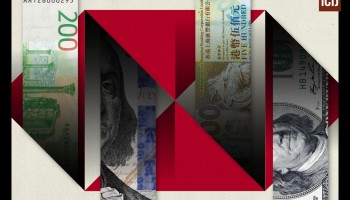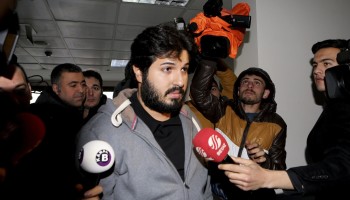Fadi Saab, a Lebanese national who founded and co-owned FBME Bank, died on Sunday at the age of 70, sources who worked at the bank or who were closely involved with its activities but wished to remain anonymous told OCCRP.
While his bank has been subject to numerous sanctions and probes, Saab never personally faced any charges or investigations.
Saab owned FBME Bank with his brother Farid Saab and served as its managing director. Under their leadership, FBME went out of business after the Central Bank of Cyprus revoked the licence of its Cyprus branch in 2015 and the Bank of Tanzania followed with a similar action against the parent bank in 2017.
The lender’s troubles began in July 2014, when the US Treasury’s Financial Enforcement Network, FinCEN, accused the bank of money laundering and of being linked to Lebanon’s Hezbollah. It sanctioned the bank in early 2016.
In October 2017, the Saab brothers lost their appeal against the FinCEN sanctions.
As the bank was fighting its battle with FinCEN, the Cyprus Central Bank ordered the FBME to compensate its depositors with up to 100,000 euro. A Cyprus court prevented the Central Bank’s attempt to liquidate FBME in 2017.
The bank, which also operated an office in Russia, has been mentioned in several OCCRP investigations.
OCCRP found that FBME facilitated money laundering by helping a Kazakh billionaire set up a swath of offshore shell companies to hide hundreds of millions of dollars he had defrauded.
Another OCCRP investigation found that large portions of laundered money belonging to sanctioned Russian plutocrats, who were exposed by Russian whistleblower Sergei Magnitsky for committing massive tax fraud, was deposited and moved through FBME accounts.
The bank has also been embroiled in accusations that it helped launder hundreds of millions of dollars used by the Assad regime in Syria to finance its chemical weapons program. Fadi Saab and his brother, Ayoub-Farid, successfully sued two British investigators they accused of leaking damaging information to the press.
The two also tried to litigate their way out of sanctions over the past several years and took the Republic of Cyprus to the Paris-based International Chamber of Commerce, seeking US$1.4 billion in compensation for damage allegedly caused by the Central Bank of Cyprus’s actions.
The brothers lost the case last year and expressed their disappointment in a statement, announcing they will be “examining potential recourse.”






